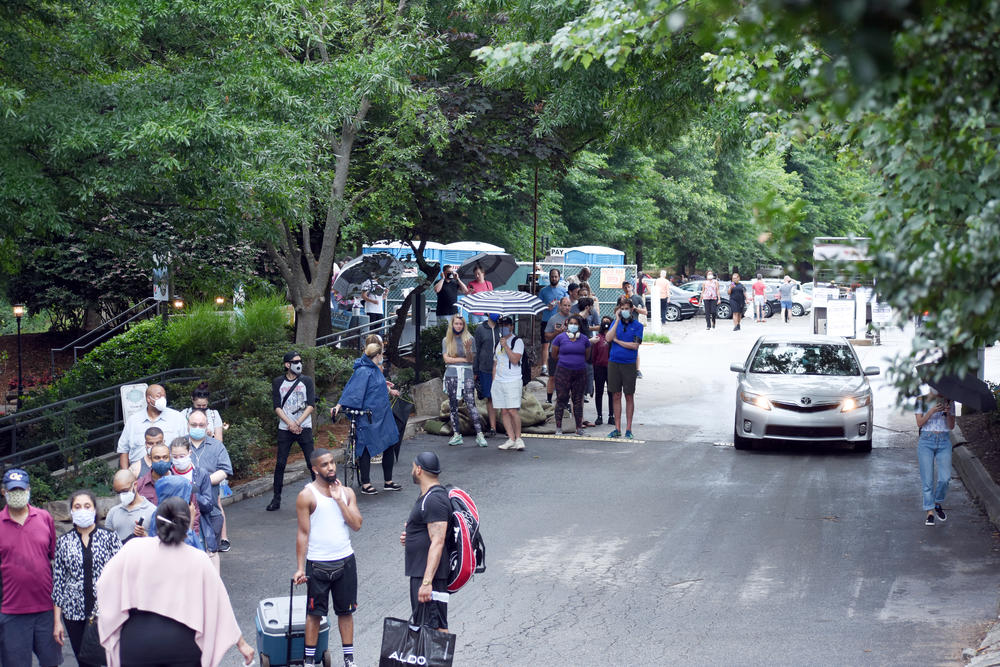Section Branding
Header Content
What Happened With Georgia's Primary Election?
Primary Content
All eyes were on Georgia’s election Tuesday, and not in the way officials hoped.
In parts of metro Atlanta, voters waited more than four hours in line as some polling places had issues with a new $104 million dollar voting system.
Now, both Democrats and Republicans want answers about what happened and what can be fixed before November.
GPB's Stephen Fowler spoke with All Things Considered anchor Rickey Bevington about the primary.
MORE: Georgia’s Predictably Problematic Primary Becomes A Reality
INTERVIEW HIGHLIGHTS
Rickey Bevington: For months, Stephen, you have talked with elections officials across the state worried about this election and the coronavirus and issues at the polls ... Did their concerns come true?
Stephen Fowler: Well, from both state and local officials I've heard there would be lines because of social distancing and fewer machines, there'd be fewer polling places as sites drop out and there'd be problems with a new voting system as new poll workers and voters are unfamiliar with them.
Now, all of those came true on Tuesday. We saw long lines form before polls even opened, inexperienced poll workers and thousands of people assigned to single polling places after churches, schools and other buildings backed out.
Bevington: You voted yourself on Tuesday morning, what was it like?
Fowler: I waited 3.5 hours to vote and there were no issues with machines at my polling place. That didn't surprise me. There were 110 people ahead of me and only five machines because of social distancing.
It's a throughput issue. There are only so many people that can vote at once, and if a long line forms before polls open, you can't magically make things go faster.
Now, based on my reporting, nothing about Tuesday's vote was unexpected because those tasked with running elections have been sounding the alarm about this for months.
Bevington: So if people were sounding the alarm, then how did these problems still happen? Why was nothing done?
Fowler: Well, there were two types of problems that happened on Tuesday. Unavoidable things like social distancing and a shortage of polling places and workers, and preventable things.
The former: you can't un-social distance or add polling places if nobody will have you. So that's a little bit of planned chaos.
The latter, training certainly helps. But if you can't get people in to get trained in person because of coronavirus, then things are likely to go wrong.
For example, several poll workers reportedly kept putting in voter access cards upside down into the machines, causing an error message to show up on the machines. That's user error.
But the other thing ... Fulton County especially had a high number of people who never received their absentee ballots, pushing more people to the polls that could have cut down on lines and confusion.
Bevington: So what is next, Stephen? What kind of changes can be made for the August runoff and then November general election.
Fowler: One thing the Secretary of State's office and others agree on is there needs to be more training for the voting system, for these poll workers ... and also more poll workers.
There's also time for counties to find polling places that come back online time, for the coronavirus threat to subside and for a sustained push to really make sure that people vote by mail and resolve any of those processing issues.



